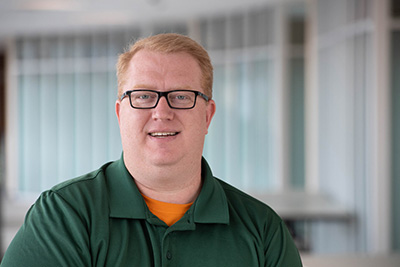Associate Professor; Director, Online Master's in Engineering in Sustainable Smart Cities
Gorrie Hall 5262
(205) 934-8479
Research and Teaching Interests: Environmental engineering as a benefit to society
Office Hours: Open door policy, and by appointment
Education:
- B.S., Auburn University, Environmental Science
- M.S., University of Alabama, Environmental Engineering
- Ph.D., University of Alabama, Civil Engineering
Dr. Jason T. Kirby is the UAB Director of the Sustainable Smart Cities master’s degree program; an international collaboration with Staffordshire University in the United Kingdom. He is also a full-time Associate Professor in the UAB Department of Civil, Construction, and Environmental Engineering, specializing in Environmental Engineering education.
Kirby is primarily concerned with advancing knowledge of the dangers and opportunities anthropogenic activities may present with respect towards our natural environment. He advocates that modern Civil Engineering practice does not have to be detrimental to the Earth’s ecosystems but rather can enhance both our quality of life and that of our planet. Kirby has developed numerous publications and has been invited to present these teaching/research efforts internationally (Egypt, Germany, UK,). He has served as the primary mentor to dozens of graduate students and supporting faculty to hundreds of undergraduates, and looks forward to the opportunity to educate the next generation of young engineers.
Dr. Kirby was the 2018 recipient of the UAB Presidents Award for Excellence in Teaching for the UAB School of Engineering.
-
Teaching and Research Interests
Kirby’s primary UAB faculty role has been the development of online, blended, and traditional courses/programs (domestic and international) that educate young engineers on the importance of environmental engineering and sustainable construction/development. The desired outcome is to make his students aware that modern engineering can be advanced while coupled with environmental preservation (17 unique course offerings).
His academic research has similarly evolved around the theme that environmental engineering can be of benefit to society and not just through the identification, monitoring and treatment of adverse anthropogenic activities. Recent funding has been secured through industrial grants as well as federal awards from the DOE, DOT, and NSF.
